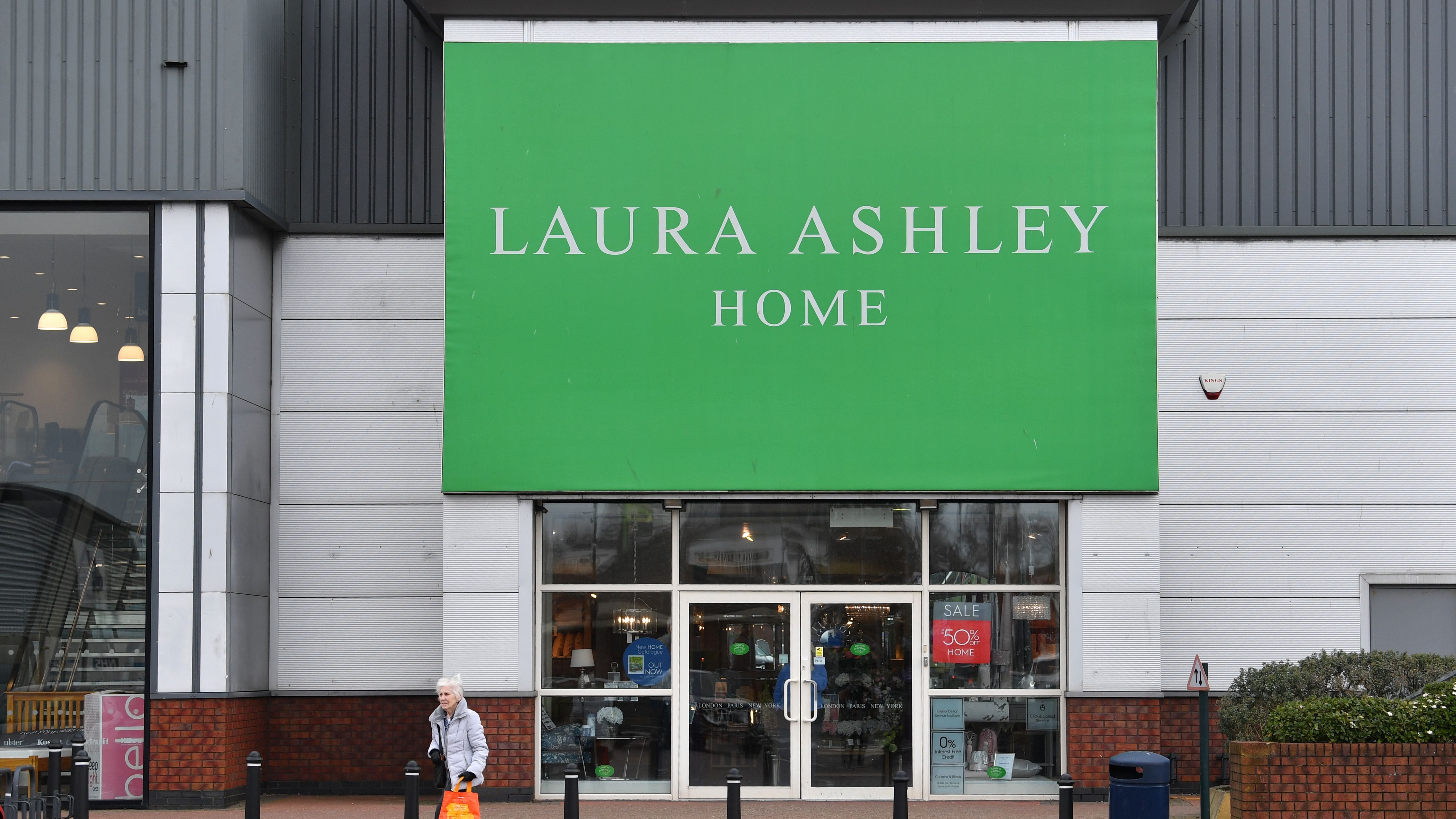Laura Ashley collapses – and other jobs at risk over coronavirus
Travel and restaurant sectors are hit but hygiene and home entertainment benefit

A free daily email with the biggest news stories of the day – and the best features from TheWeek.com
You are now subscribed
Your newsletter sign-up was successful
Struggling retailer Laura Ashley is to appoint administrators, blaming the coronavirus for an “an immediate and significant impact on trading”.
The company had been in talks with lenders about accessing money to allow it to continue trading, says the BBC. But due to cashflow uncertainties over coronavirus, those funds would not be accessible in time.
“For the seven weeks up to 13 March, trading for the Laura Ashley business improved by 24% year-on-year and the directors were encouraged by this strong performance,” said the retailer.
The Week
Escape your echo chamber. Get the facts behind the news, plus analysis from multiple perspectives.

Sign up for The Week's Free Newsletters
From our morning news briefing to a weekly Good News Newsletter, get the best of The Week delivered directly to your inbox.
From our morning news briefing to a weekly Good News Newsletter, get the best of The Week delivered directly to your inbox.
“However, the Covid-19 outbreak has had an immediate and significant impact on trading, and ongoing developments indicate that this will be a sustained national situation.”
It comes after Flybe went into administration on 4 March, with all flights grounded and the business ceasing trading “with immediate effect”.
The UK carrier, Europe’s largest regional airline, had been trying to secure a £100m loan from government to help existing financial difficulties. But that has failed and then coronavirus slashed demand, says the Financial Times.
Other jobs at risk
A free daily email with the biggest news stories of the day – and the best features from TheWeek.com
With increasing fears over travel, the tourism industry has been hit hard. British Airways and budget rival Ryanair have cut hundreds of flights as customers cancel business trips and holidays.
Virgin Atlantic is planning to cut 80% of flights and ground 75% of planes in response to the global outbreak, which threatens to take a wrecking ball to the aviation industry and put its workers out of a job.
Virgin Atlantic staff are to be asked to take eight weeks of unpaid leave over the next three months.
A spokesperson for the airline said that the move was a response to “unprecedented pressure” on the industry, echoing calls for the government to give “clear, decisive and unwavering support”.
China – the so-called “workshop of the world” – is responsible for a third of the world’s manufacturing, and is the largest exporter of goods.
But many factories have been forced to pause operations because of the outbreak, hitting China’s economy and disrupting global supply chains. Apple is among the companies who have already confirmed sales are being hit thanks to low customer demand.
Staff and owners of small businesses such as restaurants, pubs and theatres are at risk after Boris Johnson warned people to stay away from public places.
The theatre community is angry that by not ordering the closure, the PM has left them in limbo and many theatres could miss out on financial protections from insurers.
The government will today announce new economic measures to help overcome the impacts of coronavirus on businesses and workers. Chancellor Rishi Sunak is set to pledge financial support for businesses, with a special focus on travel and leisure.
Jobs that look safe
Novacyt, which makes a coronavirus test kit, has reported “unprecedented interest”, with 33,000 tests already ordered and requests for quotations from more than 30 countries, reports Proactive Investors.
Manufacturers of hand sanitisers are also benefiting, with market research data from Kantar Worldpanel showing sales of the product more than tripling in February and pharmacies having to ration sales amid a surge in demand.
“Consumer goods giant Reckitt Benckiser, for example, has seen a boost in sales for its Dettol and Lysol products,” says the BBC. “The disinfectant is seen as providing protection against the spread of the disease, although its effectiveness has not yet been scientifically proven.”
Companies that provide at-home work and entertainment services are profiting too.
Yahoo! Finance reported last week last “while the broader market tumbled more than 10% as of Thursday’s close, video conferencing company Zoom Communications (ZM) shares have soared a whopping 11%, while at-home fitness provider Peloton (PTON) jumped 12%”.
Netflix and its Chinese equivalent iQiyi also “outperformed the broader market on expectations that couch potatoes around the world will ramp up their streaming as the virus spreads”, adds the news site.
Meanwhile, as supermarkets prepare for the prospect of panic stockpiling, online grocer Ocado said it was experiencing “exceptionally high demand”, suggesting customers are stocking up owing to coronavirus fears.
“More people than usual seem to be placing particularly large orders,” the online grocer said. “As a result, delivery slots are selling out quicker than expected.”